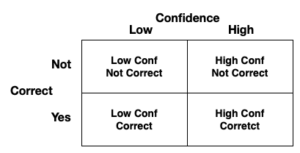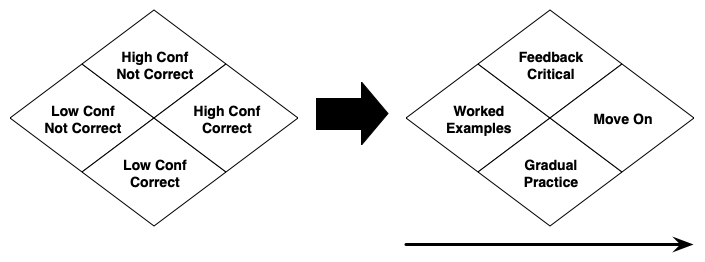On my walk yesterday, I was reflecting on our You Oughta Know with Christy Tucker (a great session, as usual), who talked about scenarios. It got me pondering, in particular, about different interpretations of ‘gamification‘. As I dictated a note to myself as I walked (probably looking like one of those folks who holds phone calls on their perambulations), I found myself discussing the differences between two approaches. So here’re some thoughts on gamification or the alternative.
To start, let’s say we have a learning goal. For instance, how to deal with customers. A typical approach would be, after an initial course, to stream out questions about different aspects of the principles. For this, you might give points after correctly answering n. Once you answer n, you get X points (10, 100, 1000, whatever). 2n gets you 2X points or maybe 3X. These points may entitle you to prizes: swag, time off, office party. Pretty typical gamification stuff.
Then, consider an alternative: they do successively more challenging scenarios. That is, initially it’s an easy customer with a straightforward problem. Then, it’s a mix of more difficult customers with simple problems and easy customers with more difficult problems. Finally, you’re dealing with difficult customers and difficult problems. Along the way, you give badges for successive levels of customer difficulty, and similarly for handling increasing levels of difficulty of problems.
Which of these is easier to implement? Will one or the other lead to better handling of customers? Which will lead to long-term engagement of your employees? Of course, these are extremes. You can have the questions in the ‘prize’ situation get steadily more challenging. They can even be written as ‘mini-scenarios’. You can mix in scenarios with knowledge questions.
What I want to suggest, however, is that not doing the latter, the scenarios, is going to keep any initiative from having the biggest impact. They’re competency-based, providing explicit levels of capability. They’re also a chance to practice when it doesn’t matter, before it does.
This shouldn’t stand alone. Of course there should be coaching, and increasing responsibility, and more. It’s not about just the formal learning. Extending the learning experience should include both formal and informal mechanisms. The point I want to make, however, is that having learners perform in practice they way they’ll need to perform when it matters, is the best preparation. Yes, you need knowledge (the stuff that, increasingly, AI can handle), but then you need meaningful practice.
Of course, if it’s something you do frequently after the learning experience, coaching may be enough. However, if aspects of it are rare but important, scenarios are the important reactivation practice that will keep skills tuned. So, that’s my take on gamification or alternates. How would you fine tune my response?





